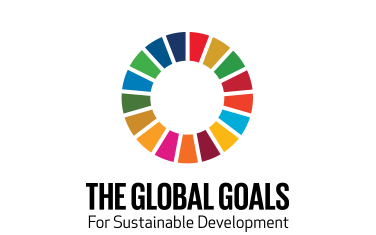Research
At the division of Innovation we offer insights, understanding, frameworks, methodologies, and tools to address societal challenges, particularly those linked to sustainable development goals. Our focus is on:
- analyzing the outcomes and effectiveness of innovation activities, and how public policy shapes the innovation environment
- exploring the innovation process—from generating new ideas to implementing novel products and processes
- examining the methods and tools employed throughout the innovation process.
Additionally, our research involves the advancement of methods that facilitate innovation and the cultivation of individual innovation skills.
Our research focuses on three levels:
On the societal level, we explore innovation in relation to policy, regional development, and entrepreneurial ecosystems. Specifically, the topics currently addressed include the changing design and role of innovation policy in the society (notably transformative innovation policy), corporate venturing, experimentally oriented economy, entrepreneurial ecosystems – all at different scales and in different places. We foster interdisciplinary collaboration to develop novel conceptual and empirical approaches for studying innovation and cultivate a rich intellectual environment. Our commitment extends to policy impact, working together with policy practitioners and providing research-based inputs to discussions on the role of innovation in delivering on societal objectives.
Do you want to know more?
Contact one of the researchers:
Åsa Lindholm Dahlstrand, Professor
Torben Schubert, Senior Lecturer
Innovation at the organizational level refers to the creation, development, and implementation of novel ideas, solutions, products, practices, processes, services, or systems within or related to specific companies or institutions. It also covers issues related to inter-organizational activities and cooperation between organizations as well as with society. This type of innovation is focused on enhancing current practices including efficiency, competitiveness, and overall performance in organizations and the outcomes that they produce. It also focuses on radical innovation aiming at transitional practices including circular systems, sustainable behavior, emotional durability, product integrity, and multiple resource loops and use cycles. It involves the introduction of new knowledge, practices, mindsets, methods, strategies, structures, technologies, or business models to drive the development and implementation of sustainable solutions. Examples of topics addressed include entrepreneurial experimentation, design thinking and business model innovation, innovation management capabilities and competences, sustainable and agile product development, and human-centered and need-based design.
Do you want to know more?
Contact one of the researchers:
Jessica Wadin, Associate Professor
Lars Bengtsson, Professor
Innovation at the solution/product level is focused on enabling the design of products and systems that take factors such as sustainability, usability, functionality, manufacturability, and user behavior into account. To facilitate the transformation from traditional mechanical products to sophisticated software-driven solutions, our research is rooted in new technologies in a digital landscape, such as additive manufacturing, design optimization, generative design, data-driven design, mass customization and research into new materials and smart devices. In our pursuit of innovation, we recognize exciting potential at both the product and system levels to promote social, environmental, and economic sustainability. Our research is therefore driven by a transdisciplinary collaborative approach that brings different areas together to uncover new possibilities and opportunities in the dynamic interplay between people, products, and services. We also focus on the creation of customer value in relation to product authenticity and product circularity.
Do you want to know more?
Contact one of the researchers:
Axel Nordin, Senior Lecturer
Glenn Johansson, Professor
Per Kristav, Lecturer
Recognizing the inherently interdisciplinary nature of innovation, our research frequently spans and converges across these areas. Examples of level-spanning topics include sustainability and circularity considerations, technology development and implementation, human behavior and needs, etc.
Research at the division of Innovation
Contact Rhiannon Pugh, Senior Lecturer
In the research portal you can find all researchers at Innovation
Vision
Our vision is to be the leading research environment in driving interdisciplinary innovation studies for lasting societal value.
Mission
Our mission is to conduct transformative, interdisciplinary innovation research to promote sustainability and create value for society, industry, and policy.

Global Goals at Design Sciences, LTH
Innovation is part of the department of Design Sciences. At Design Sciences, we start out from the UN’s Global Goals to create sustainable living conditions for everyone. For us, it’s about designing technologies and environments for the good of all people based on these sustainability goals.
Innovation and the Global Goals
Innovation research supports the 17 UN Sustainable Development Goals, and in line with the Faculty of Engineering’s vision also clusters around the five main areas of climate, life, digitalization, industry, and environment. In particular, we look at specific areas such as healthcare, renewable energy, cloud computing, life sciences, information technology, additive manufacturing, and retail trade.
